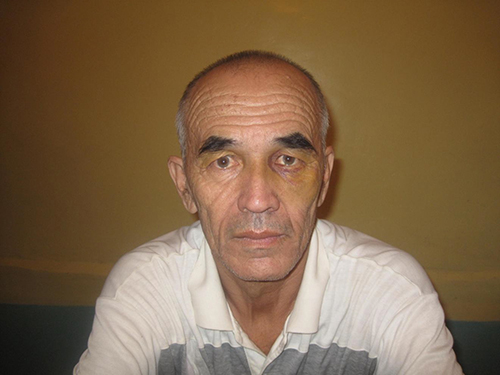In a milestone decision announced today in Geneva, the U.N. Human Rights Committee called on Kyrgyzstan to immediately release Azimjon Askarov, a journalist sentenced to life in prison in September 2010. The U.N. body issued its decision after reviewing a complaint filed in November 2012 by Askarov’s lawyer, Nurbek Toktakunov, and a team of experts from the New York-based Open Society Justice Initiative.
CPJ has been demanding justice for Askarov since his arrest amid ethnic unrest in southern Kyrgyzstan in June 2010. Authorities convicted the contributor to independent news websites including Voice of Freedom and Ferghana News with a number of crimes including incitement to ethnic hatred and complicity in the killing of a local policeman. The journalist denied the charges and witnesses who could prove his innocence were too intimidated to testify, according to reports. According to CPJ research, the charges against Askarov, who was awarded the International Press Freedom Award in 2012, were retaliatory after his exposés of abuse by police and prosecutors and reporting on the early stages of the June 2010 ethnic conflict.
The Human Rights Committee’s findings said that under article 2 of the International Covenant on Civil and Political Rights, Kyrgyzstan is obligated to make full reparation to the individual whose rights have been violated, and must take immediate steps to release the individual and quash the conviction. Kyrgyzstan is also obligated under its constitution to respect the U.N.’s findings. Article 41.2 of the country’s highest law says that if an international human rights body confirms the violation of human rights, Kyrgyzstan will “take measures to their restoration and/or compensation of damage.”
Askarov’s lawyer, Toktakunov, told Open Society Justice Initiative, “Kyrgyzstan’s constitution requires the government to implement rulings of the Human Rights Committee and to release Mr Askarov. Kyrgyzstan’s current role as one of 47 elected members of the U.N. Human Rights Council also underlines its obligation to adhere to its international human rights commitments.”
The findings by the U.N. committee are in line with CPJ’s June 2012 report on Askarov’s case which highlighted numerous violations including the unjust nature of his arrest, denial of access to the lawyer, and torture in state custody. The report is based on court documents, statements by defense witnesses, Askarov’s medical records, and interviews with Askarov and his colleagues. In its decision today, the committee concluded that Kyrgyzstan violated several International Covenant on Civil and Political Rights provisions, including those covering torture, arbitrary arrest, inhumane treatment and the right to a fair trial.
Kyrgyzstan denied to the Human Rights Committee that Askarov was tortured and ill-treated in custody. CPJ contacted the Kyrgyzstan embassy in Washington, D. C. for comment today but was told no one was immediately able to respond to the queries.
A copy of the Human Rights Committee findings can be viewed here.
EDITOR’S NOTE: The fourth paragraph has been corrected to reflect that there are 47 elected members of the U.N. Human Rights Council.
